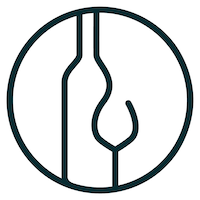
There are many reasons why people switch careers. For some it is about boosting their earning potential, while for others it might be about reducing stress or switching to something they are more passionate about. And naturally that is also the first step to take before doing anything else; identify your reason for wanting to switch careers. Take it a step further by also considering what type of career switch you might be making. Are you looking at a complete pivot into a different role and industry, or are you looking at moving into a different industry that relies on similar skills to those you already have?
Once you have done that, all the other steps outlined in this guide become a lot easier.
Assess Current & Needed Skills
Knowing what type of career switch you are contemplating will help you with this step. Even better if you know the role or job title you are targeting. Take some time to draw up a list of all your current skills, separating soft skills from hard skills. Soft skills such as:
- Analytical or problem-solving skills
- Communication skills
- People or interpersonal skills
- Positivity and adaptability
- Teamwork skills
- Leadership skills
are transferable skills that are highly sought after by employers. Hard skills are less transferable depending on how big a career change you are pursuing but are still worth listing.
Next you need to carefully assess the skills your new career and role require. You do this so that you can not only identify which skills you lack, but also whether there are any courses you can take that will give you the required skills. Maybe you’re a banker who has decided being a barista is your true passion. Or perhaps you’re working front of house but really want to work in a management role. There are many jobs in the hospitality industry that can be accessed following a short course rather than having to head back to university.
Do Informational Interviews
Sometimes what we think a certain job or career involves is very different to the reality. The easiest way to understand what a typical day, week, and month entails is to conduct informational interviews with people working in the industry and role you are interest in.
Draw up a list of questions you have about the industry and careers within the industry, not just the role in which you are interested. Then identify people within that industry you would like to interview. Contact them and see if they would be interested in meeting with you to discuss their job. While the interview is more of an informal meeting and discussion, you should still act professionally. This also allows you to establish whether you can switch straight into the role you want or whether you need to start in a junior role and work towards your desired role.
Create a Transition Plan
Once you are sure of switching careers and have done the initial work of assessing skills and doing a few informational interviews, you need to draw up a transition plan. This should not only outline your goal, but also the steps needed to achieve it, and a timeline for each milestone.
See how many of the steps you can work on while still in your current job, which can help to minimise any financial pressure that sometimes comes with switching careers. It should also include details of when you would start job hunting, and how you would go about this. A transition plan can also help keep you motivated as you track your progress towards your dream career.
Some career switches are easy, while others come with many challenges. But with proper planning and a clear idea of how to switch, anyone can change careers at any age.





